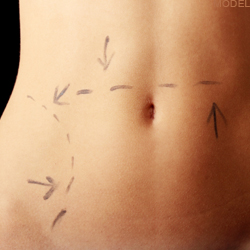Most Toronto plastic surgeons understand that every patient we see has a unique background and set of needs. It’s true, though, that many of the same issues arise time and again among our patients. Here, I’ve compiled some of the concerns I’ve heard many times during consultations for various procedures, as well as my responses. If you’ve considered plastic surgery, I bet at least one of these issues has crossed your mind.
1. “A surgeon is a surgeon — I’m not so fussy about whom I see. I just want the procedure.”
Regulation of surgeons performing procedures here in Ontario has tightened, but it is still important that Toronto patients considering plastic surgery do their own homework and check the credentials of the surgeon they seek care from. And my best advice is: Do not leave Canada for “plastic surgery tourism.” Standards of care and regulation of health practitioners vary widely across the globe, and once you leave the safety of Canadian soil, all bets are off. It really is a case of “buyer beware.” Back home, choosing a plastic surgeon is not only a case of choosing someone who is skilled, but you should also feel like you’ve found a “good fit.” You need to feel comfortable that you can communicate well with your surgeon and his or her team, and that post-surgical care will meet your expectations.
2. “I’ve tried exercising, and can’t lose weight. I think I’ll just get a tummy tuck or liposuction.”
Many people are under the impression that procedures such as a tummy tuck and liposuction, or non-invasive procedures such as LipoSonix™ ultrasound fat reduction, can help you lose weight. These procedures are not designed to achieve overall weight loss. Tummy tuck surgery is excellent for eliminating excess hanging skin after weight loss, and liposuction is great for getting rid of a bulge here and there, but ideally you need to be close to your ideal target weight before the procedure to get the best results. Studies show weight loss is mostly about diet, not exercise (though exercise is important for health and can help maintain weight once lost). A professional dietician can help you lose unwanted weight, and if you really are unable to do it with diet, bariatric surgery is an option.
3. “Plastic surgery means no scars, right?”
Have the right expectations. Surgery always means scars; there is no avoiding that. Although plastic surgeons are trained to minimize how visible scars are, and we have ways to conceal them, such as in natural skin folds, there will always be some scarring. How visible scars are will in part depend on a given individual’s own healing. Discuss things like scars in detail with your surgeon before surgery, and follow his recommendations for reducing scarring afterward. For example, I always give my patients detailed instructions regarding dressings and application of scar-reducing topical ointment.
4. “I’ve thought about plastic surgery, but I feel too embarrassed, like I am being too vain.”
Many people have a feature that has bothered them for a long time, maybe even a lifetime. Their self-esteem is affected, and they are self-conscious. Plastic surgery can help. Our physical appearance should not dictate all of how we see ourselves, but like it or not, it is part of who we are. If a straightforward procedure can correct something that bothers us, or if it can bring our physical selves closer to how we feel on the inside, then it is worth thinking about seriously. Plastic surgery is sufficiently commonplace now, there is no longer any stigma attached to it, and people should not feel embarrassed to take proactive steps and pursue something they want.
5. “My boyfriend likes girls with large breasts, so I am thinking about a breast augmentation.”
It’s important to undergo surgery for the right reasons. Plastic surgery should be about what you want and not about anyone else. Relationships may come and go, and if there are difficulties in a relationship, they are unlikely to be solved by plastic surgery. The time to consider a facelift is when you don’t like what you see in the mirror, not when you’re worried your partner may stray. And although plastic surgery can improve self-esteem, it is not a fix-all. If you are suffering from depression, the reasons for that need to be examined. Plastic surgery alone is not a treatment for low mood.
6. “I feel I look tired and old when I look in the mirror. I guess it’s time for a facelift.”
There are lots of cosmetic options these days that don’t require surgery. The advantage of seeking advice from a plastic surgeon who is conservative and who offers many less-invasive procedures is that you may wind up benefitting from treatments that don’t involve surgery. Consider laser therapies, injectables, and even good-quality skin care, or body sculpting procedures such as LipoSonix. All of these can give people substantial improvement in their appearance without going under the knife.
7. “I wish I could look younger or improve my shape, but I don’t want plastic surgery because everyone who has it looks so unnatural.”
There are many people who have had plastic surgery, but you can’t tell. The obvious ones give us plastic surgeons a bad rep. My goal is always to make people look natural — just as the best version of themselves. I hear regularly from patients that this is what they like the best: They look good, but no one has guessed that they had anything done.



Leave a Reply